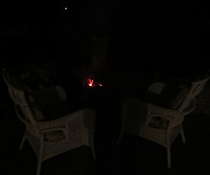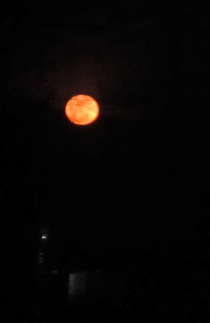 Gentile Bellini “Annunciation” The angel Gabriel was sent by God to a town in Galilee called Nazareth, to a virgin betrothed to a man named Joseph, of the House of David; and the virgins name was Mary. He went in and said to her, Rejoice, so highly favoured! The Lord is with you. She was deeply disturbed by these words and asked herself what this greeting could mean, but the angel said to her, Mary, do not be afraid; you have won Gods favour. Listen! You are to conceive and bear a son, and you must name him Jesus… Mary said to the angel, But how can this come about, since I am a virgin? The Holy Spirit will come upon you the angel answered and the power of the Most High will cover you with its shadow… I am the handmaid of the Lord, said Mary let what you have said be done to me. And the angel left her.
Gentile Bellini “Annunciation” The angel Gabriel was sent by God to a town in Galilee called Nazareth, to a virgin betrothed to a man named Joseph, of the House of David; and the virgins name was Mary. He went in and said to her, Rejoice, so highly favoured! The Lord is with you. She was deeply disturbed by these words and asked herself what this greeting could mean, but the angel said to her, Mary, do not be afraid; you have won Gods favour. Listen! You are to conceive and bear a son, and you must name him Jesus… Mary said to the angel, But how can this come about, since I am a virgin? The Holy Spirit will come upon you the angel answered and the power of the Most High will cover you with its shadow… I am the handmaid of the Lord, said Mary let what you have said be done to me. And the angel left her.
Luke 1:26-38
A friend of mine, poet Kilian McDonnell OSB, wrote a poem titled “In the Kitchen.” Here are a few lines:
Bellini has it wrong.
I was not kneeling
on my satin cushion
quietly at prayer,
head slightly bent.
Painters always
skew the scene,
as though my life
were wrapped in silks,
in temple smells.
Actually I had just
come back from the well,
placing the pitcher on the table
I bumped against the edge,
spilling water on the floor.
As I bent to wipe
it up, there was a light
against the kitchen wall
as though someone had opened
the door to the sun…
Hearing the story in Luke, or reflecting on some of the many paintings made of the Annunciation, we might be tempted, like the painters, to forget that Mary was a young girl, busy with ordinary chores of life in Nazareth. Was she frightened when she saw the light and realized what was being asked of her? Was she tempted to say “no” to the invitation to become a pregnant, unmarried, betrothed maiden? Did images of implications flash through her mind?
Her faith was deep and pure. Still, saying “Yes” was a brave thing, a profound thing for the young girl to say. She was giving herself away to her God and to a future that she could not imagine. She trusted God with her life which in that moment was forever changed.
When someone called Dorothy Day, founder of the Catholic Worker, “a saint,” her reply was: Don’t call me a saint. I don’t want to be dismissed so easily.
We should not dismiss Mary easily either, by imagining she was so different than us. It gets us off the hook of responding courageously to God’s call to us. Just as calling someone “a saint” puts her in a category of “other,” and makes her life not some much an example to be followed as an aberration available to a select few, thinking of Mary as the serene woman in Bellini’s painting can imply that we have an excuse for not following her example: She is different than the rest of us.
Indeed, she is different: She is the mother of God. Still, she was a human being and her “yes” came with great cost. This is not a day of sentimentality, but a day of challenge. A day to commit ourselves to saying “yes” despite the cost.
 PHOTOS: Mary van Balen The rich man replied, Father, I beg you then to send Lazarus to my fathers house, since I have five brothers, to give them warning so that they do not come to this place of torment too. They have Moses and the prophets, said Abraham let them listen to them.. Ah no, father Abraham, said the rich man but if someone comes to them from the dead, they will repent. Then Abraham said to him, If they will not listen either to Moses or to the prophets, they will not be convinced even if someone should rise from the dead.
PHOTOS: Mary van Balen The rich man replied, Father, I beg you then to send Lazarus to my fathers house, since I have five brothers, to give them warning so that they do not come to this place of torment too. They have Moses and the prophets, said Abraham let them listen to them.. Ah no, father Abraham, said the rich man but if someone comes to them from the dead, they will repent. Then Abraham said to him, If they will not listen either to Moses or to the prophets, they will not be convinced even if someone should rise from the dead. PHOTO: Mary van Balen It is you that the Lord our God has chosen to be his very own people out of all the peoples on the earth. It was for love of you and to keep the oath he swore to your fathers that the Lord brought you out with his mighty hand and redeemed you from the house of slavery, from the power of Pharaoh king of Egypt. Know then that the Lord your God is God indeed, the faithful God who is true to his covenant and his graciousness for a thousand generations towards those who love him and keep his commandments.
PHOTO: Mary van Balen It is you that the Lord our God has chosen to be his very own people out of all the peoples on the earth. It was for love of you and to keep the oath he swore to your fathers that the Lord brought you out with his mighty hand and redeemed you from the house of slavery, from the power of Pharaoh king of Egypt. Know then that the Lord your God is God indeed, the faithful God who is true to his covenant and his graciousness for a thousand generations towards those who love him and keep his commandments.
 PHOTOS: Mary van Balen You visit the earth and water it,
PHOTOS: Mary van Balen You visit the earth and water it, Melanie returned. We sat on her veranda, lit a fire in the chiminea, and ate homemade soup as we waited for the moon to make its appearance. It did not disappoint, rising big and orange through the trees. As it climbed higher, the moon looked back at itself from Melanie’s pond.
Melanie returned. We sat on her veranda, lit a fire in the chiminea, and ate homemade soup as we waited for the moon to make its appearance. It did not disappoint, rising big and orange through the trees. As it climbed higher, the moon looked back at itself from Melanie’s pond.

 Thai postage stamp honoring Goddess Guan Yin
Thai postage stamp honoring Goddess Guan Yin  The Lord said to Abram, Leave your country, your family and your fathers house, for the land I will show you. I will make you a great nation; I will bless you and make your name so famous that it will be used as a blessing.
The Lord said to Abram, Leave your country, your family and your fathers house, for the land I will show you. I will make you a great nation; I will bless you and make your name so famous that it will be used as a blessing. PHOTO: NASA Bless the Lord, all his works,
PHOTO: NASA Bless the Lord, all his works, PHOTO: Mary van Balen
PHOTO: Mary van Balen  (U.S. Navy photo by Mass Communication Specialist 1st Class Matthew M. Bradley/Released)
(U.S. Navy photo by Mass Communication Specialist 1st Class Matthew M. Bradley/Released)